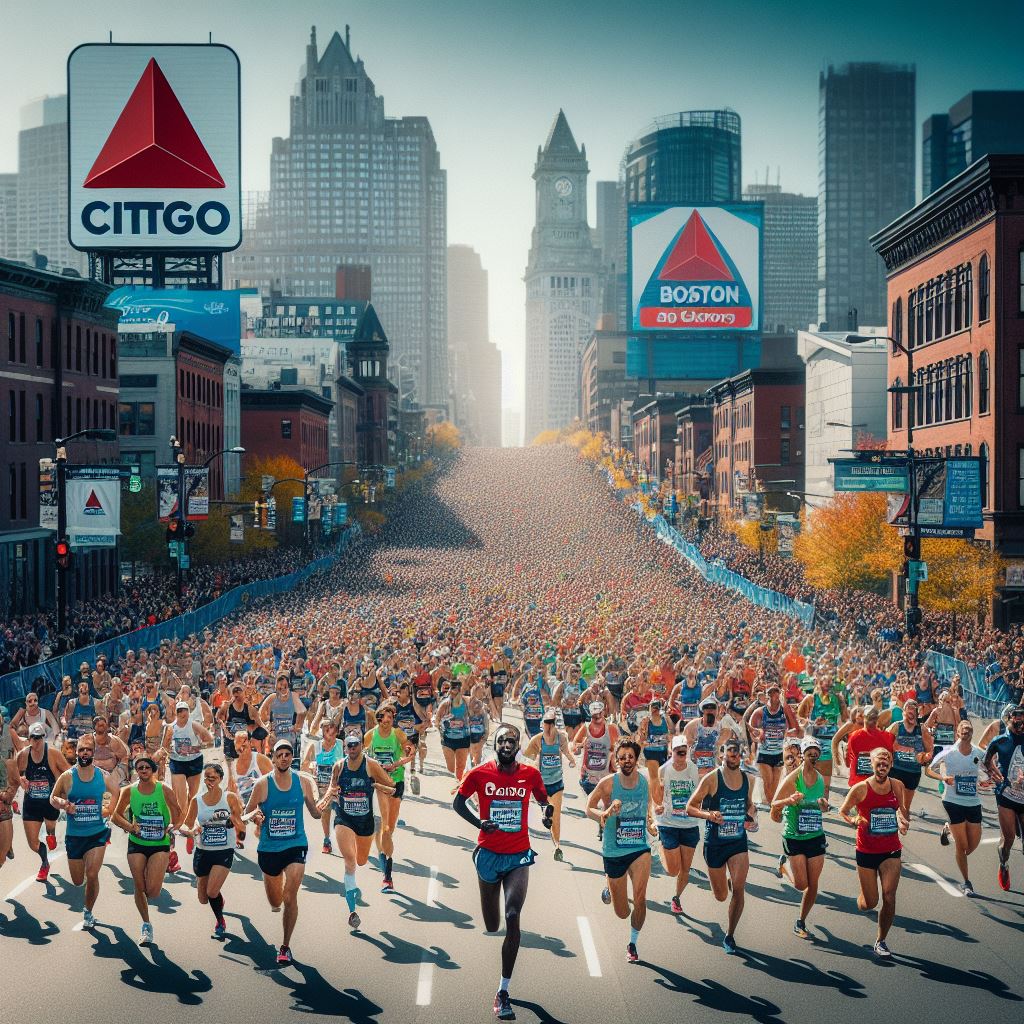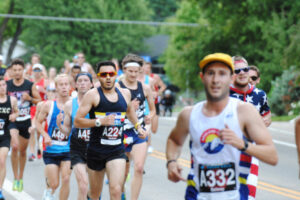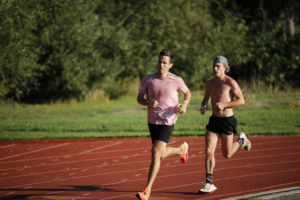The number one thing you can do to improve your chances of qualifying for the Boston Marathon is to pick the right race that meets the Boston Marathon qualifying standards. Some races are just, plain and simple, much faster than other races. There are MANY reasons why some courses run faster times than others. Here’s a few: the elevation profile might be more favorable (aka net downhill), the time of year the race is run might consistently produce better running weather, the race might attract more BQ ready runners making the packs and pacing better, the race might just be run on smoother nicer roads that lend to running faster, some races have better aid stations and organization etc etc etc.
Qualifying times for the Boston Marathon are adjusted for each specific age group and gender, emphasizing the importance of meeting the designated time standards based on age and gender to qualify for the marathon.
With that being said, first look at this site
They rank all the factors of how likely it is for a runner to qualify for Boston at each race. Write down all the races you think might work for you from a travel, logistics, and annual planning perspective, and then work with your coach to figure out a plan of how to put together a multi-seasonal plan. You need to act quickly and think not only long term, but very far into the future because many of the good races sell out MONTHS in advance. It is also crucial to choose a qualifying marathon that meets the Boston Marathon standards.

What is the best marathon to qualify for the Boston Marathon? Well if I had to give one answer I’d say CIM. It’s the perfect mid size, slightly downhill race that is run incredibly well by its organization. But when you start to look at these lists, you’ll see TONS of other great options.
https://www.marathonguide.com/races/BostonMarathonQualifyingRaces.cfm
https://www.findmymarathon.com/50-best-boston-marathon-qualifiers-in-2023.php
Here’s the list that the Boston Athletic Association lists on their own website of the Top Qualifying races:
TOP BOSTON MARATHON QUALIFYING RACES*
- Boston Marathon
- Chicago Marathon
- New York City Marathon
- California International Marathon
- Philadelphia Marathon
- Erie Marathon
- Mountains 2 Beach Marathon
- REVEL Mt Charleston Marathon
- Berlin Marathon
- Indianapolis Monumental Marathon
- Twin Cities Marathon
- London Marathon
- St George Marathon
- Richmond Marathon
- Grandma’s Marathon
- Ottawa Marathon
- Phoenix Marathon
- Baystate Marathon
- REVEL Big Cottonwood Marathon
- Lehigh Valley Via Marathon
- Steamtown Marathon
- Marine Corps Marathon
- Mohawk Hudson River Marathon
- Jack and Jill’s Downhill Marathon
- Bayshore Marathon
Each of these races is a recognized qualifying race for the Boston Marathon.
*The list above does NOT reflect how many individuals achieve a qualifying performance at each respective event. The list above does NOT represent a complete list of marathons used to qualify for the Boston Marathon.
Now what should you do if you can’t find a race on there that you can run? Well first ask around in your community which races nearby might be good for a BQ. Go to your local running store and ask them! Or search ‘best boston qualifying races near (insert your area)’
Look at any potential races making sure the elevation profile is favorable and they plan on having a lot of stocked aid stations. Preferably every mile.
Weather
Weather might be the most, or at least the second most, important factor when determining which race to choose for your Boston Marathon qualification attempt. Many people overlook how critical it is to pick a race with weather that suits their bodies and optimizes their performance. Some runners excel in cooler temperatures, while others perform better in warmer conditions. Understanding how your body responds to different weather conditions can make a significant difference on race day. Selecting a race with a climate that matches your preferences can help you run more comfortably and efficiently, increasing your chances of meeting the qualifying time. So, when planning your marathon, give serious thought to the typical weather conditions of potential races and choose one that aligns with your optimal performance environment.
I think this most often impacts athletes who do not run well in the heat. Obviously running raises your core temperature but there are many runners who can not handle exercising in warm conditions. Qualifying for Boston is quite difficult and will have your internal temp higher than usual. If you’re sensitive to heat, take some time to look up the average temperature on race day for any potential races. Find a race that consistently has weather that you can run well in.
Qualifying Window
One of the trickiest parts of qualifying for Boston is timing the qualification window. Typically the window runs from September to the next year’s September to qualify for the race… the next year.
EXAMPLE
So take 2024. The window opened September 1 of 2022 and stayed open until September 15th of 2023. So you could a BQ certified race in side of that window of about 54 weeks, a year and two weeks. If you ran a qualifying time you then have to register inside of the registration window, typically 5 days. for 2024 is was September 11th to September 15th. Which is kind of crazy because technically the window is still open during the registration window. So you would have applied in September of 2023 to run the race in April of 2024. Pretty wild process!
You might have qualified in 2022, applied in 2023, and run the race in 2024. But you probably started training for it in 2021. The average runner needs 2-5 attempts to qualify, since not everyone can hit the time standard on their first try, meaning for some folks this whole process might take them close to a decade.
Wrapping Up
Hopefully you have a handsome running coach or some great friends to guide you through this process. It’s incredibly cool to even attempt this feat and even more memorable to line up on Marathon Monday in Boston!


